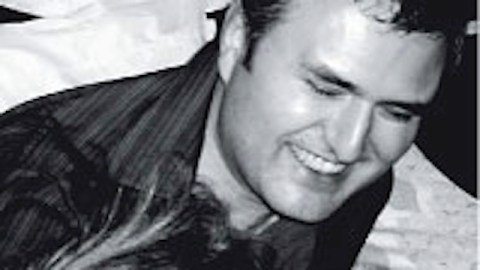The Unbearable Lightness of Being Nick Denton

He is charismatic. He is attractive. And perhaps his best weapon is an apparent agnosticism when it comes to the Money/Power manna of classic media moguls. Denton is a mogul, no doubt. His business, Gawker, has become something which matters, even for those who pretend not to know what it is, who maintain they have never visited any of its ancillary sites, and who protest when pressed that they must have been, at one time, sent a link. Is it possible to be reading and working in the “center of the Universe,” and not care about Nick Denton?
Of course it is. But now that The New Yorker has anointed him via profile, it is worth asking, what is this moment in Denton’s life, and in the life of “new” media more broadly, that makes a business based on blogs matter more now than ever?
Denton’s carefully cultivated (which is not to say false) nihilism leaves many envying him: for being cool while apparently not caring for Cool at all. Gawker’s value proposition is novel: feel intelligent while gossiping. We needed that. The urge to unpack post-millenial, post-Hope anger at those who have more—more power, more money, more glamour, more access—is a disease that uniquely drives New Yorkers. Gawker, even more than comparatively milky columns in city tabloids, is an aria to all that. It mainlines the Want Monster, then mocks him.
Denton is in on the joke. McGrath explains:
Oxford, like England as a whole, was undergoing a cultural transition in the aftermath of punk and New Wave. Denton understood himself to be one of “Thatcher’s children,” on the cusp of a new generation. “People in the year above thought we were careerists on the make,” he said. “At that point in England, it was only just becoming respectable or accepted, the idea of being ambitious.” He spent three weeks living and working on a kibbutz, in Israel, and still bears a scar on his left index finger from an accident he had with a metal brush machine while he was making furniture. But most of his extracurricular energies were more deliberately professional, like internships at Tatler and the Evening Standard.
To feel conflicted about ambition, even for someone of Denton’s generation, seems archaic and banal. Ambition is the religion in the cities he has chosen as homes, and the bases for his business. It is what makes New York New York, at once divine to those who elect to live here and intolerably heretical to those who choose to leave. This religion needed a daily wire, and Denton has provided it.
But we know he is smarter than what he does. We know he must concentrate on the philosophical bottom line, like all Big Thinkers. Does he ask: what’s it all for?
Walter Kirn, in the Times Magazine, called our new networked era one in which “Little Brother,” drives culture, and so our actions:
Little Brother affords us no such luck, in part because he dwells inside us rather than in some remote and walled-off headquarters. In the new, chaotic regime of networked lenses and microphones that point every which way and rest in every hand, permitting us to train them on ourselves as easily as we aim them at one another, the private and public realms are so confused that it’s best to treat them as identical. With nowhere to hide, you might as well perform, dispensing with old-fashioned notions of discretion and personal dignity.
Denton knows this. Yet plus ca change, plus c’est le meme chose has a new analog in the blogosphere: the more blogging, the less change. The less change, the more chance of revolution. The Unbearable Lightness of Being was about revolutions large and small, about the relative “lightness” of most decisions we take in our lives. It was about love and sex and how we compartmentalize them. Revolution, philosophy, love: these are topics one might not necessarily associate with Gawker, but we know enough now to associate them with the man behind the silly name. Hey, hey.





